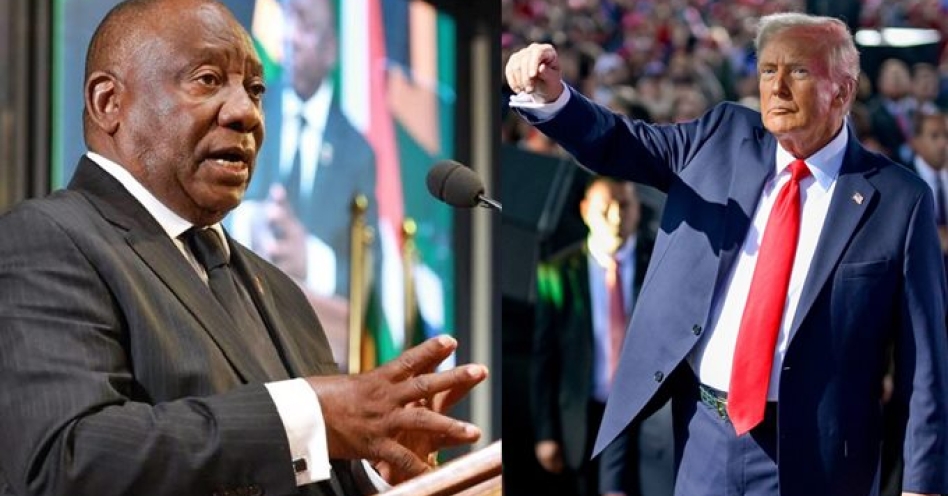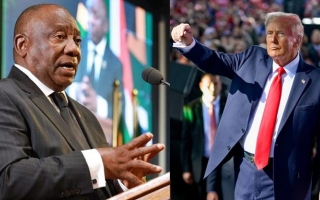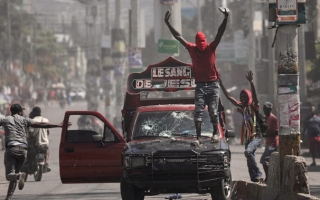Trump versus South Africa: Who won?
Article By: Old Harbour News

President of South Africa Cyril Ramaphosa (left) and US President Donald Trump
Trump amplified right-wing claims of white farmers being targeted in South Africa, framing it as a “white genocide.” While this lacks credible support from international human rights bodies, it became a political lever for Trump to pressure South Africa. The article suggests Trump used these claims to appeal to a segment of his base, rather than out of a grounded human rights concern.
Ramaphosa opted for diplomatic patience, avoiding direct confrontation while defending the ANC’s controversial land expropriation policies and broader post-apartheid reforms. Despite the withdrawal of $200–$300 million in US aid, South Africa minimized the fallout, as the funds mainly supported sectors often critical of the ANC anyway.
The relationship shifted from ideological posturing to transactional pragmatism. Ramaphosa appears to have placated Trump with potential trade opportunities: LNG imports and critical mineral exports. South Africa used soft power effectively, bringing Trump allies (Rupert, Els, Goosen) into the diplomatic process, signaling business continuity and white South African inclusion.
Trump reportedly displayed graphic images of unrelated violence, confusing the Congo crisis with South Africa’s internal affairs, a sign of poor briefing. Ramaphosa, in contrast, avoided public escalation and kept the talks centered on economic cooperation, a win for South Africa diplomatically.
The article by Sviridov, who is deputy director, expert at the Centre for African Studies, Higher School of Economics, Moscow, highlights a broader shift: Africa is learning to handle Trump, appealing to his transactional instincts, while maintaining autonomy on core political issues (e.g., the ICJ case against Israel). Simultaneously, Washington's global leverage is waning. African nations can now pivot to alternative power centers (e.g., China, Russia, Gulf states) when US pressure mounts.
So, Who “Won”?
Ramaphosa, according to the article, emerges as the strategic winner. He preserved national sovereignty on contentious domestic policies (like land reform), redirected the conversation to economic cooperation on favorable terms, and presented South Africa as a regional anchor and a global player, gaining credibility on the African continent.
Trump, meanwhile, scored points domestically with his base, but failed to gain any serious concessions or political wins abroad. His initial hardline approach softened into a business-first diplomacy that Ramaphosa skillfully managed.
The episode reflects the limits of American soft power, particularly when it’s filtered through misinformation or ideological posturing. It also demonstrates Africa’s growing confidence and diplomatic maturity, especially when dealing with polarizing global leaders.


















